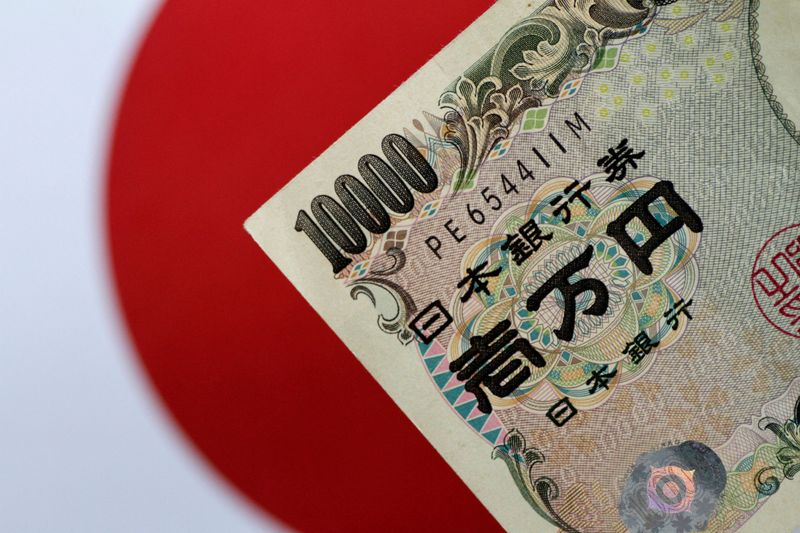By John McCrank
NEW YORK (Reuters) -The dollar hit a six-year high versus the yen after the Bank of Japan moved to contain rising bond yields, while U.S. Treasury yields soared to new multi-year highs, highlighting a divergence between the BOJ and other major central banks.
Treasury 10-year yields vaulted above 2.5% to three-year highs, with the U.S. Federal Reserve expected to deliver a half-point interest rate rise in May as it tackles rising inflation, having kicked off its tightening cycle this month.
"We now expect the FOMC to hike by 50 bps at the next two meetings before shifting back to a 25-bps-per meeting cadence for the reminder of the year," said Michael Gregory, deputy chief economist at BMO Capital Markets Economics.
Interest rate hike expectations helped lift the dollar to its highest in two weeks against a basket of six major peer currencies, last up 0.313% at 99.158, at 3:20 p.m. Eastern Standard Time (1920 GMT).
Against the yen, the dollar surged as much as 2.5% to its highest level since August 2015 and the biggest one-day rise since March 2020. Yen losses in March surpass 7% and the currency is set for its biggest monthly and quarterly falls since 2016. The dollar was last up 1.34% against the Japanese currency at 123.715 yen.
Struggling to swim against the tide lifting interest rates higher globally, the BOJ staunchly defended its 0.25% yield cap on Monday by offering to buy an unlimited amount of government bonds (JGBs) for the first four days of this week.
While that did not stop 10-year yields hitting the upper limit of the BOJ's policy band, it sent the yen spiralling.
"On net, JGBs mostly shook off what was just a repeated gesture to defend the 10-year yield ceiling but the signal toward expanding money supply contributed to yen softness alongside the more dominant Federal Reserve effects on the dollar," said Derek Holt, head of capital markets economics at Scotiabank Economics.
Big energy import bills and the loss of tourism revenues mean "the weight on the yen is likely to remain for the next year," said Colin Asher, senior economist at Mizuho.
The Japanese currency also lost ground against the euro, which is increasingly underpinned by expectations the European Central Bank will join the rate hike club this year.
The euro gained 1.27% to 135.895 yen, a four-year high.
The euro edged up 0.03% against the greenback to 1.0984. The single currency's fortunes this week could be determined by inflation figures from major European economies, with the bloc's harmonised HICP inflation seen edging up to 6.5% in March.
Analysts at Monex said given the yen's weakness and risks to the euro from the Ukraine-Russia conflict, the dollar would likely stay buoyant, especially if Friday's jobs data proved strong.
"Should wage growth continue to tick up despite the recent increase in labour supply, money markets are likely to fully price two 50 bp hikes from the Fed in May and June," they added.
In commodity currencies, the Australian dollar dipped 0.33% to $0.74895, but was not far off its recent four-month high.
In cryptocurrencies, bitcoin rose 2.53% to a year-to-date high of $48,050.90.

It bitcoin holds above $47,000, it could be in for a major breakout, said Edward Moya, senior analyst at Oanda.
"Once bitcoin crosses the $50,000 level, that should trigger further retail and institutional interest," he said.